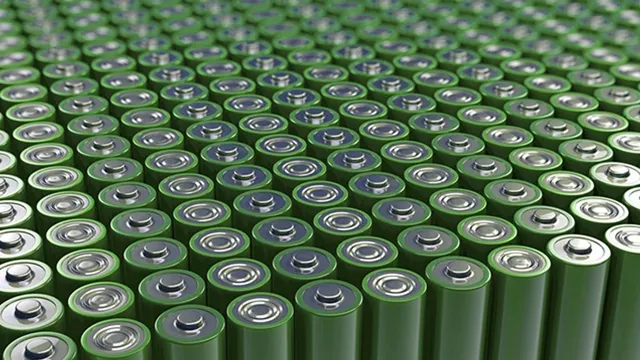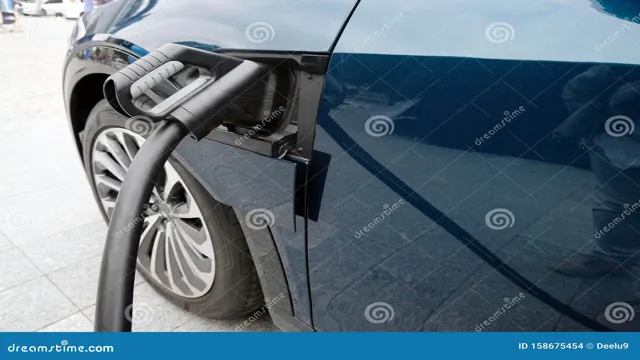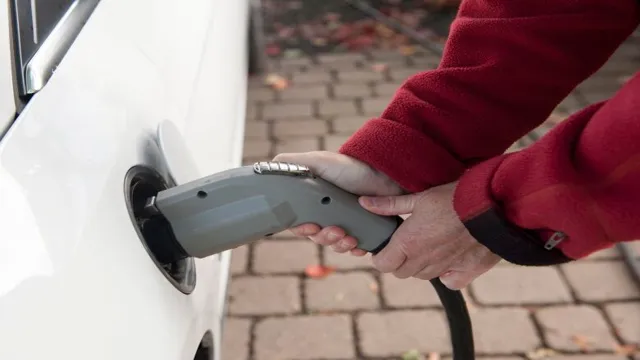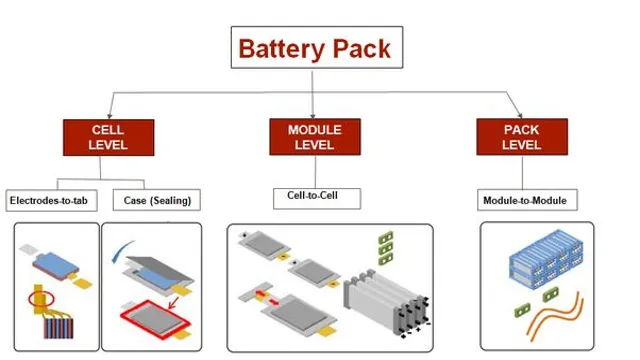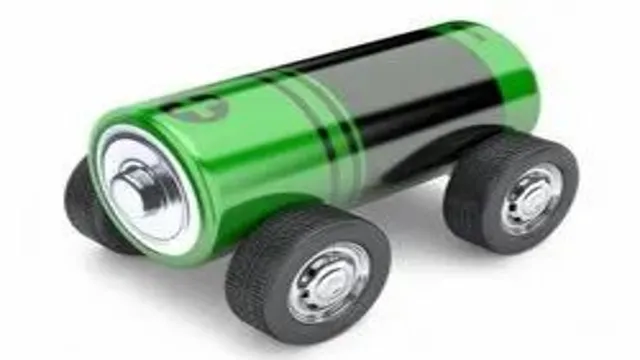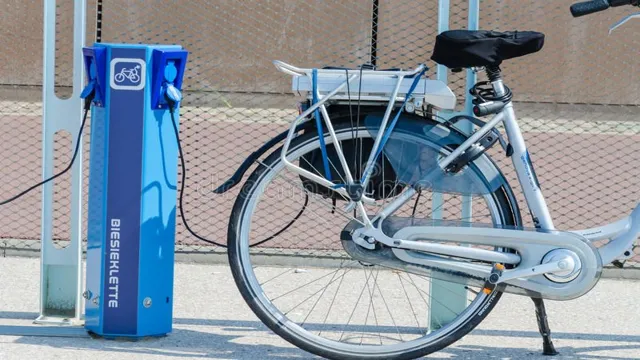Revolutionize Your Ride with the BYD Electric Car Battery: A Greener, Faster, and More Efficient Way to Drive
Electric cars have been the buzz of the automotive world for quite some time now. And while they undoubtedly promise a cleaner, greener future, one of their biggest challenges has been their battery life. That is until BYD, a Chinese automaker, burst onto the scene with a revolutionary electric car battery that is set to change the game! This BYD electric car battery promises an extended range, faster charging times, and a longer lifespan – all while being significantly more affordable.
But what exactly makes the BYD electric car battery stand out from the rest? In this blog, we’ll explore the breakthrough features of this innovative battery and what they mean for the future of electric cars.
What makes the BYD battery different?
When it comes to electric car batteries, the BYD battery stands out from the rest. What sets the BYD battery apart is its innovative use of iron-phosphate chemistry, which offers increased safety, stability, and longevity compared to other battery types. This chemistry also allows the BYD battery to charge more quickly and hold a charge for longer periods of time, making it practical for long-range driving and minimizing charging time.
Additionally, BYD batteries come equipped with advanced thermal management systems that ensure optimal operating temperature and prevent overheating. The BYD battery’s impressive performance and safety features have made it a top choice among electric car manufacturers and consumers alike. So if you’re in the market for an electric car, consider one with a BYD battery for a reliable and efficient experience on the road.
Longer-lasting charge
The BYD battery stands out from other batteries in the market for its longer-lasting charge. But what makes it different? Well, the answer lies in its chemistry. Unlike traditional lithium-ion batteries, which use cobalt as a cathode material, the BYD battery uses iron phosphate.
This not only makes it cheaper to produce, but it also makes it more stable and less susceptible to overheating or catching fire. This unique chemistry also allows the BYD battery to maintain its capacity and performance over time, so you won’t have to replace it as frequently as other batteries. So, if you’re looking for a battery that will last longer and require less maintenance, the BYD battery is definitely worth considering.
More efficient energy output
One of the standout features of the BYD battery is its ability to provide more efficient energy output than traditional batteries. What sets this battery apart is its use of lithium iron phosphate (LiFePO4) chemistry, which offers higher energy density and longer cycle life. Unlike other batteries, the BYD battery is able to maintain a high level of performance even in extreme temperatures, due to its superior thermal stability.
Additionally, the BYD battery offers a faster charging time, making it more practical for everyday use. Another unique aspect of the BYD battery is its safety features. It is highly resistant to thermal runaway, which means there is less risk of it catching fire or exploding.
This is because of the battery’s design, which utilizes a ceramic separator that prevents short circuits and provides better thermal management. In summary, the BYD battery offers a superior energy output due to its LiFePO4 chemistry, thermal stability, faster charging time, and advanced safety features. These characteristics make it an excellent choice for a wide range of applications, from electric cars to residential and commercial energy storage systems.
Built with sustainable materials
BYD battery When it comes to sustainable materials, the BYD battery is a standout choice. This high-tech battery is made with unique components that promote both durability and eco-friendliness. But what really sets the BYD battery apart is its use of iron phosphate.
This material is not only abundant and low-cost, but it’s also much safer than the traditional lithium-ion materials used in most batteries. Iron phosphate is non-flammable, non-toxic, and resistant to thermal runaway, which means it won’t catch fire or explode even in extreme conditions. This makes the BYD battery a much safer and more sustainable option for a wide range of applications.
Plus, it has a much longer lifespan than many other batteries on the market, reducing the need for frequent replacements and ultimately minimizing environmental impact. All in all, the BYD battery is a smart choice for anyone looking to prioritize sustainability and safety in their energy storage solutions.
How does the BYD battery compare to others on the market?
When it comes to electric car batteries, the BYD battery is no doubt a top contender. What sets it apart from others on the market is its impressive energy density, meaning it can store a lot of energy in a relatively small and lightweight package. This translates to longer driving ranges and quicker acceleration.
Additionally, BYD has invested heavily in improving the safety and durability of their batteries, using advanced materials and design to minimize the risk of fire or malfunction. Compared to other batteries, the BYD battery also has a longer cycle life, meaning it can go through more charge-discharge cycles before needing to be replaced. Overall, the BYD battery is a reliable and high-performing option for any electric car owner.
Tesla vs. BYD: Which battery is better?
When it comes to electric vehicle batteries, the competition between Tesla and BYD is fierce. Both companies are known for their cutting-edge battery technology, but which one comes out on top? Well, according to industry experts, while Tesla may have the upper hand in terms of brand recognition, BYD’s batteries are nothing to scoff at. In fact, BYD’s Blade Battery technology has been making waves in the market recently, thanks to its innovative design and impressive safety features.
Unlike other lithium-ion batteries, which can be prone to catching fire if they are punctured or damaged, the Blade Battery is much more durable and stable. Plus, it boasts a longer lifespan than other batteries on the market, making it a cost-effective choice for electric vehicle manufacturers. So, while Tesla may have the glamour and hype, BYD’s Blade Battery technology is definitely worth considering for those in the EV industry.
BYD vs. Nissan: Which has the better battery?
When it comes to electric vehicle batteries, two names that often come up are BYD and Nissan. So, which one has the better battery? Well, it really depends on what you’re looking for. BYD’s batteries are known for being incredibly reliable and long-lasting, thanks to their use of innovative technologies like cobalt-free lithium-ion and blade battery.
On the other hand, Nissan’s batteries offer a more affordable and mass-produced option, with a range of up to 226 miles on a single charge. Ultimately, the choice between the two boils down to your specific needs and budget. Whether you prioritize reliability or affordability, both BYD and Nissan have batteries that can suit your needs.
So, before making a decision, consider factors like range, cost, and battery life to determine which battery is right for you.
Comparison of BYD battery to traditional gasoline cars
When it comes to comparing BYD batteries to traditional gasoline cars, there are a few factors to consider. First and foremost, the BYD battery is much more environmentally friendly, producing zero emissions and reducing our carbon footprint. Additionally, the BYD battery is often more efficient than gasoline cars, allowing for longer ranges and faster charging times.
However, it’s important to note that BYD batteries may not yet be as widely available as traditional gasoline cars and may come at a higher initial cost. Nonetheless, the benefits of the BYD battery will only continue to grow as more people switch to electric vehicles and charging infrastructure continues to improve. Overall, the BYD battery stands out as a sustainable and innovative solution for our transportation needs.
What models of electric cars use BYD batteries?
BYD is a leader in the production of electric car batteries and has partnerships with car manufacturers around the globe. Some of the most notable models of electric cars that use BYD batteries include the Qin, Tang, and e The Qin is a compact sedan that has been praised for its impressive acceleration and range, thanks in part to its BYD battery.
The Tang, on the other hand, is a larger SUV that boasts a sleek design and long-range capabilities. The e6 is a fully electric minivan that has been used for everything from taxi fleets to police vehicles. Not only has BYD created batteries for these specific models, but they also offer their battery technology to other car manufacturers in an effort to promote sustainable transportation.
With BYD batteries in high demand, it’s clear that they are a top choice for car companies looking to produce electric vehicles with cutting-edge technology.
BYD Tang EV
BYD batteries are becoming increasingly popular in the electric vehicle market, with several models now utilizing their technology. One such model is the BYD Tang EV, a sleek SUV that boasts a range of more than 300 miles on a single charge. The Tang EV also features impressive acceleration and a spacious interior, making it a great choice for those looking for a stylish and practical electric vehicle.
In addition to the Tang EV, BYD batteries are also used in the popular Toyota Prius Prime plug-in hybrid, as well as various models from Chinese automaker, Changan. With its impressive durability and reliability, as well as its commitment to sustainability, it is no surprise that BYD batteries are becoming an increasingly popular choice for electric vehicle manufacturers around the world.
BYD e6
BYD e6, electric cars, BYD batteries If you’re interested in electric cars, you might have come across the BYD e But did you know that this model isn’t the only one that uses BYD batteries? In fact, several other electric vehicle brands have partnered with BYD to use their batteries in some of their models. One of these brands is Daimler, which uses BYD batteries in their Denza electric car.
Additionally, BYD batteries are used in the K9 electric bus manufactured by Chinese company Build Your Dreams (BYD). These batteries are known for their stability, reliability, and long lifespan, making them an attractive option for electric vehicle manufacturers. So while the BYD e6 may be the most well-known electric car that uses these batteries, it’s certainly not the only one.
Conclusion: Why the BYD battery is worth considering
In conclusion, the BYD electric car battery is no ordinary power source. It’s a game-changer in the world of sustainable transportation, offering long-lasting performance, incredible efficiency, and remarkable reliability. From urban commuters to long-distance road trippers, the BYD battery is an electrifying testament to the future of clean energy.
So why settle for a run-of-the-mill gas-guzzler when you can drive a BYD-powered vehicle and make a real difference for the planet? Charge up, hit the road, and experience the electric revolution today!”
FAQs
What is the lifespan of a BYD electric car battery?
BYD electric car batteries have a lifespan of around 10 years or 150,000 miles, whichever comes first.
How do you maintain a BYD electric car battery?
To maintain the health of a BYD electric car battery, it is recommended to avoid exposing the car to extreme temperatures, charge it regularly, and keep it at a partial charge when not in use.
How long does it take to fully charge a BYD electric car battery?
The charging time for a BYD electric car battery can vary depending on the model and charger used. It can take as little as 30 minutes with fast charging or up to 8 hours with level 1 charging.
Can you replace a BYD electric car battery?
Yes, BYD electric car batteries can be replaced when they reach the end of their lifespan. The cost of replacement may vary depending on the model and age of the car.
